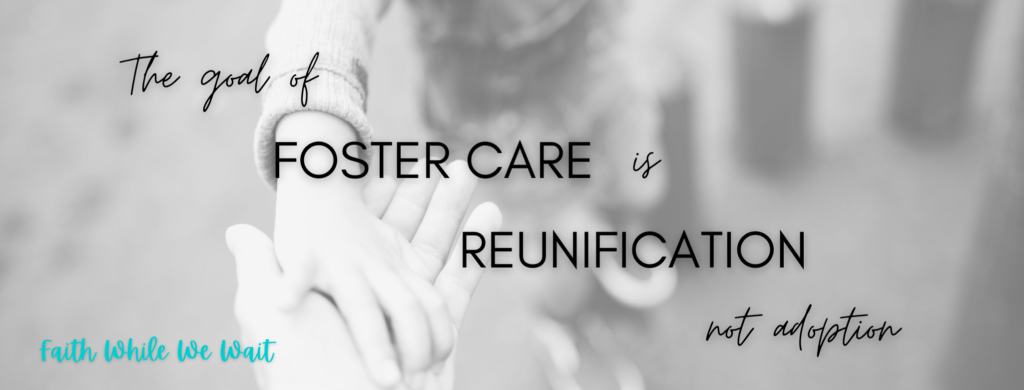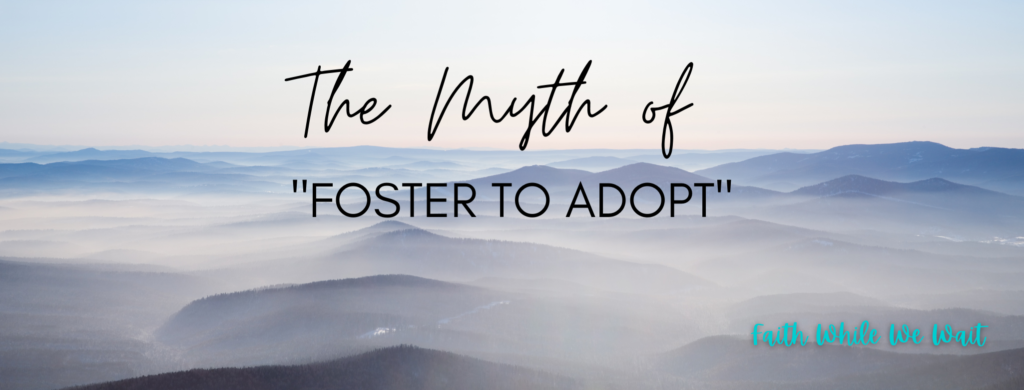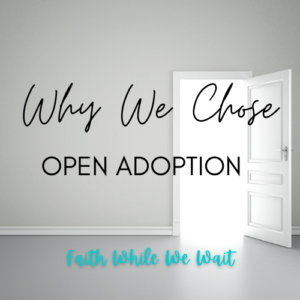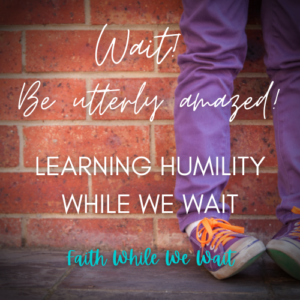Our decision to become foster parents came 100% from our desire to adopt. Growing our family through adoption was something we’d talked about off and on over the years, and adopting through foster care seemed like the perfect fit for our goals: adopt domestically, keep a sibling group together, and incur minimal expenses. In our 10+ years working in public schools, we’d seen so many kids in our own communities in need of a safe, loving home, so we knew international adoption would not be our path. We had both seen the hurt of kids separated from their siblings in addition to the trauma of suddenly living in a new home. While this is often unavoidable in foster care, and is sometimes done for the benefit of the children, we hoped we could keep a sibling group together if logistics were the only reason they were being separated. As for the minimal expenses…well, we’d already looked into private adoption and had that “conversation” after major sticker shock. On two teachers’ salaries, we really didn’t think we would ever be able to afford private adoption, so adoption through foster care seemed like the only way to fulfill this calling and desire.
Throughout the process of becoming certified foster parents, we made it clear to everyone that our mindset was always foster to adopt. Our plan was to only meet children who were legally free for adoption, meaning their parents’ rights had already been terminated by the courts or voluntarily surrendered by their parents (this process is called TPR: termination of parental rights). This was purely for our benefit: we wanted a sure thing to minimize the risk of heartache, and we did not want to “deal with” biological families. We heard the term “reunification” many times during our training, but didn’t really allow the concept sink in. We were laser focused on growing our family while helping children in need, with little to no regard for their biological families.
This was not the attitude we needed to have to be successful foster parents.

As we became more educated in the world of foster care, we began to understand that parents of children in foster care need help and love too. Many spent time in foster care as children themselves, and most landed in this place of being unable to safely care for their family because of some personal trauma in their past. Sometimes circumstances beyond their control, or just ONE decision, put them on a path that they never expected to be travelling. This does not mean they do not love their children; they just need help getting to a mental and physical state where they can be responsible parents.
Just before we were officially certified, we felt God prompting us to become “resource parents”, meaning the children who came to us would more than likely not be legally free for adoption. The expectation of a resource parent is to partner with biological families, caring for the children to allow their parents the time and space to get help for themselves and sometimes even being a mentor to teach them some parenting skills along the way.
Full transparency: our motivation for this change was to get children in our home faster. Being considered “adoption only” meant fewer opportunities for placement. In most cases, it takes at least twelve months for TPR to happen, so children would have been in at least one other foster home for 12-24 months before we would meet them. We didn’t want to miss out on those important early days, so we decided that becoming resource parents would be worth a little risk.
Even though our motivation was selfish, God used that ONE decision to send us
down a path that was completely different from the one we expected to travel.
We didn’t realize it, but we had a big problem: our goals and attitudes towards foster care did not align with our commitment to be resource parents. Here’s what we didn’t understand: “foster to adopt” is not a real thing. Yes, adoption through foster care happens, but foster to adopt is never the goal. The purpose of foster care is always reunification, ideally with the biological parents but often with a biological family member. Foster to adopt is a last resort, when reunification is not possible.
Foster to adopt only happens when two conditions are met:
1. all of the interventions put in place by the courts failed to change the path of the biological parent(s), AND
2. the child has no biological family members who are willing and able to care for the child
Do you see why foster to adopt is never the goal of foster care? Don’t misunderstand me: adoption through foster care is a beautiful thing, and could certainly be part of our family’s story some day. But we can’t ignore the fact that adoption through foster care comes from a place of tragedy and trauma that will always be part of the story, too. No one hopes that these two situations are true for any child.
Our intentions were pure: we wanted the twins we had been fostering for ten months, through medical emergencies and a legal roller coaster, to be part of our family permanently because we loved them so deeply. We grew to truly care for their biological mother, and we did (and still do) encourage her in many ways. However, we were so focused on the goal of adoption that we were unable to see the bigger picture, which was what God knew was truly best for the boys: to be with their wonderful biological family. Secretly hoping the biological family will fail or back out so you can adopt their children is a terribly unhealthy mindset for everyone involved.

Right now our hearts are set on adoption. We cannot have more biological children, but we know our family is not complete. God called us to be foster parents for a season, and now has led us to step away from foster care to grow our family through adoption. God used our time as foster parents to prepare us for becoming adoptive parents. The work He did within us through our experiences in foster care changed our hearts to desire a kind of adoption that we would otherwise not have even considered. We had a really great plan in place (or so we thought!), but as usual, God has a bigger and better plan in store for our family.
Some day we will return to foster care. We still want to provide a safe, loving home for children in need, but the next time we are foster parents we will be a mental and emotional place where we can truly be resource parents and focus on the goal of reunification.
If you are in the process of becoming a foster parent, or even considering it, evaluate your goals and expectations before you jump in. Being a foster parent isn’t easy, but it is an incredibly rewarding job that will change your life for the better.
Just be sure you’re going in to it with the right attitude..it will save you a lot of heart ache.





